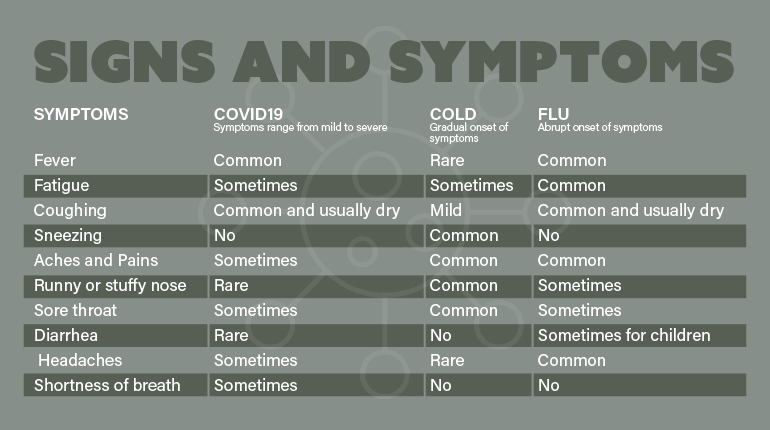
As the Department of Health continues to closely follow and receive new information on COVID-19, we have compiled answers to some of your frequently asked questions about the virus, including how to protect yourself and to stop it from spreading amongst family and in your communities.
How does COVID-19 spread?
- From person-to-person
- Droplets from the nose or mouth when a person with COVID-19 coughs, sneezes or exhales
- Droplets land on objects and surfaces around the person
- Other people touch these objects or surfaces, then touch their eyes, nose or mouth
- Breathe in droplets from a person with COVID-19 who coughs out or exhales droplets
Can the virus that causes COVID-19 be transmitted through the air?
Studies to date suggest that the virus that causes COVID-19 is mainly transmitted through contact with respiratory droplets rather than through the air.
Who is at risk of developing severe illness?
While we are still learning about how COVID-2019 affects people, older persons and persons with pre-existing medical conditions such as high blood pressure, heart disease or diabetes appear to develop severer illness more often than others.
Should I wear a mask to protect myself?
People with no respiratory symptoms, such as coughing, do not need to wear a mask. The World Health Organization recommends the use of masks for people who have symptoms of COVID-19 and for those caring for individuals who have symptoms, such as cough and fever. The use of masks is crucial for health workers and people who are taking care of someone (at home or in a healthcare facility). The most effective ways to protect yourself and others against COVID-19 are to frequently clean your hands, cover your cough with the bend of elbow or tissue and maintain a distance of at least one meter from people who are coughing or sneezing.
How long does the virus survive on surfaces?
It is not certain how long the virus that causes COVID-19 survives on surfaces, but it seems to behave like other coronaviruses. Studies suggest that coronaviruses (including preliminary information on the COVID-19 virus) may persist on surfaces for a few hours or up to several days. This may vary under different conditions (e.g. type of surface, temperature or humidity of the environment). If you think a surface may be infected, clean it with simple disinfectant to kill the virus and protect yourself and others. Wash your hands with soap and water or an alcohol-based hand sanitiser. Avoid touching your eyes, mouth or nose.
Related topics:
- Help prevent the spread of COVID-19
